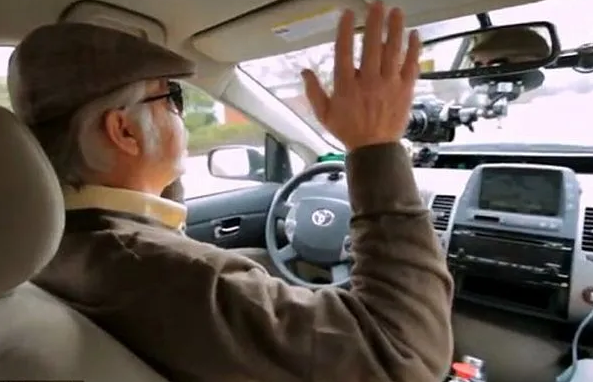Toxic masculinity and automated driving systems seem to go hand in hand.
A new study from the Insurance Institute for Highway Safety shows that far too many drivers say they're more likely to engage in unsafe practices, such as texting or eating behind the wheel while using their partial automation systems than while driving unassisted — and the majority of those reckless car pilots are men.
First, the top line: In a study of regular users of Cadillac Super Cruise, Nissan/Infiniti ProPILOT Assist and Tesla Autopilot researchers found that 53 percent of Super Cruise users, 42 percent of Autopilot users and 12 percent of ProPILOT Assist users said that they were comfortable treating their vehicles as fully self-driving.
“The big-picture message here is that the early adopters of these systems still have a poor understanding of the technology’s limits,” said IIHS President David Harkey. “But we also see clear differences among the three owner populations. It’s possible that system design and marketing are adding to these misconceptions.”
Marketing is clearly a key.
Super Cruise and Autopilot users are more likely than ProPILOT users to take their hands off the wheel or their eyes off the road. They’re also more likely than ProPILOT users to say they can do non-driving activities better and more often while using their partial automation systems.
No surprise there, the researchers found: "TV commercials for Super Cruise focus on its hands-free capabilities by depicting drivers patting their laps and clapping their hands along with a song, for instance. (Cadillac’s Super Cruise indeed allows drivers to take their hands off the wheel for extended periods.) Meanwhile, "the name Autopilot implies Tesla’s system is more capable than it really is," the study said. "In contrast, the name ProPILOT Assist suggests that it’s an assistance feature, rather than a replacement for the driver."
Similarly, Super Cruise and Autopilot users are more likely to say that an activity they think is unsafe to do when the system is switched off is safe to do when the system is switched on. ProPILOT users were the least likely to say that.
And around 40 percent of users of Autopilot and Super Cruise, the two systems that lock out drivers who ignore warnings to pay attention, reported that their systems had at some point switched off while they were driving and would not reactivate, suggesitng that those drivers failed to respond to the warnings. But a substantial portion of ProPILOT Assist users said they had never even received an attention reminder.
Consider the demographics of these systems' users: The majority of Super Cruise and Autopilot owners are men, while ProPILOT owners broke down along normal demographic lines.
“These results from frequent users of three different partial automation systems once again drive home the need for robust, multifaceted safeguards,” said IIHS Research Scientist Alexandra Mueller, the lead author of the study and main architect of the Institute’s upcoming safeguards rating program. “Many of these drivers said they had experiences where they had to suddenly take over the driving because the automation did something unexpected, sometimes while they were doing something they were not supposed to.”
None of the current systems is designed to replace a human driver or allow a driver to take her focus away from the road. There's ample evidence from studies of real-world crashes and other tests that partial automation systems struggle to recognize and react to many common driving situations and road features — most notably, the fatal 2018 crash of a self-driving Uber that killed Elaine Herzberg in Tempe.
Almost-total assistance makes it hard for drivers to remain engaged and tempts them to turn their attention to other things, other research shows.
Automated driving systems are seen as a precursor to fully "self-driving cars," which promise to be safer, but remain controversial for now because their testing is barely regulated by federal authorities despite vast repercussions. Last month, a coalition of city transportation officials urged the federal government to deny auto companies permission to field 2,500 cars without steering wheels, brake pedals and mirrors — that is, the controls that lets humans take over if the high-tech machinery goes haywire.






